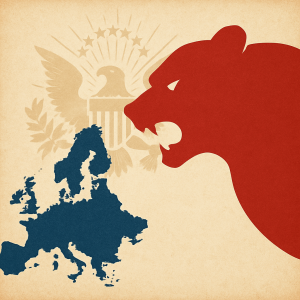Mr Putin has just played against his country and, incidentally, shot himself in the foot. Mr Putin is definitely losing his hand, he panics and blinds himself because what did he do when the European Union sent him the head of its diplomacy to try to prevent the Navalny affair from jeopardising any joint action by the 27 and the Russians on their common grounds of interest?
Instead of noticing that although Europeans condemned, of course, this judicial relentlessness against Alexei Navalny, they were still eager not to completely break with Moscow, he publicly mistreated them, not to say slapped them in the face. He could have received the head of European diplomacy to show that he, too, wanted bridges to remain open between the Union and the Russian Federation. This gesture would have cost him nothing, but he refrained from doing so. Josep Borrell was only able to meet his counterpart, Sergei Lavrov, who outdid himself in his role as bulldog and, icing on the cake, even before this visit was over, Moscow announced the expulsion of three European diplomats, guilty of having gone to observe the protests against the persecution of the Russian Robin Hood.
That was all that was not to be done because what was in it for Mr Putin?
If he had had an ounce of skill, he could have insisted, as he had recently done, on his willingness to develop common grounds with the Union. He could have been inspired by what Mr Xi did in December when he signed an agreement with the Union that distances the EU from the United States when it comes to relations with Beijing. Now that he had lost his friend Trump, Mr Putin could have reverted to the traditional Russian desire to try to “decouple” the two sides of the Atlantic. He could at least have remained as deaf as the Soviet leadership when François Mitterrand had defended Andreïi Sakharov in the middle of a state dinner in the Kremlin, but no!
Mr Putin played the showoff, the schoolyard bully. This brings him nothing more than an admission of panic, the reason of which is simple.
By having had the incredible audacity to return to Moscow, Alexeï Navalny imposed himself as an equal to the Russian president. For the first time in two decades in power, Vladimir Putin is faced with a leader of the opposition, and it will be difficult to have him assassinated now that he has failed to poison him. He is surprised and bewildered by this, at the very moment when he is slowly but surely getting bogged down in Syria, losing his foothold in the states that have emerged from the Russian Empire and seeing his popularity decline because the standard of living is falling in Russia and he is becoming a man of the past.
Twenty years ago, Vladimir Putin had attracted the vast majority of Russians by presenting himself as the avenger of a Russia as humiliated by the loss of its Empire as it was by the theft of the supposedly collective property of Soviet times. In this he was the man of revenge for the closing 20th century, but the 21st century has now begun.
Russians under forty years of age have not known the Empire just as the French or the British today do not live off their lost possessions. The robbery that outraged the Russians is no longer that of the fraudulent privatisations of 1991, but of the incredible corruption that reigns today at the highest levels of the State.
Mr Putin has had his time and he feels it so clearly that he is panicking and is doing everything that he should not do by isolating his country from Europe and condemning it to a one-on-one with China, which nobody, nor the big money makers, nor the security apparatus, nor the urban middle classes want in Russia.An end of reign is opening up in Russia. The process may be long and painful but it has begun and the European Union must now set about talking directly to the Russians to tell them of its desire for economic cooperation and continental stabilisation. It is with the post-Putin era in mind that the Union must begin to lay the groundwork.



